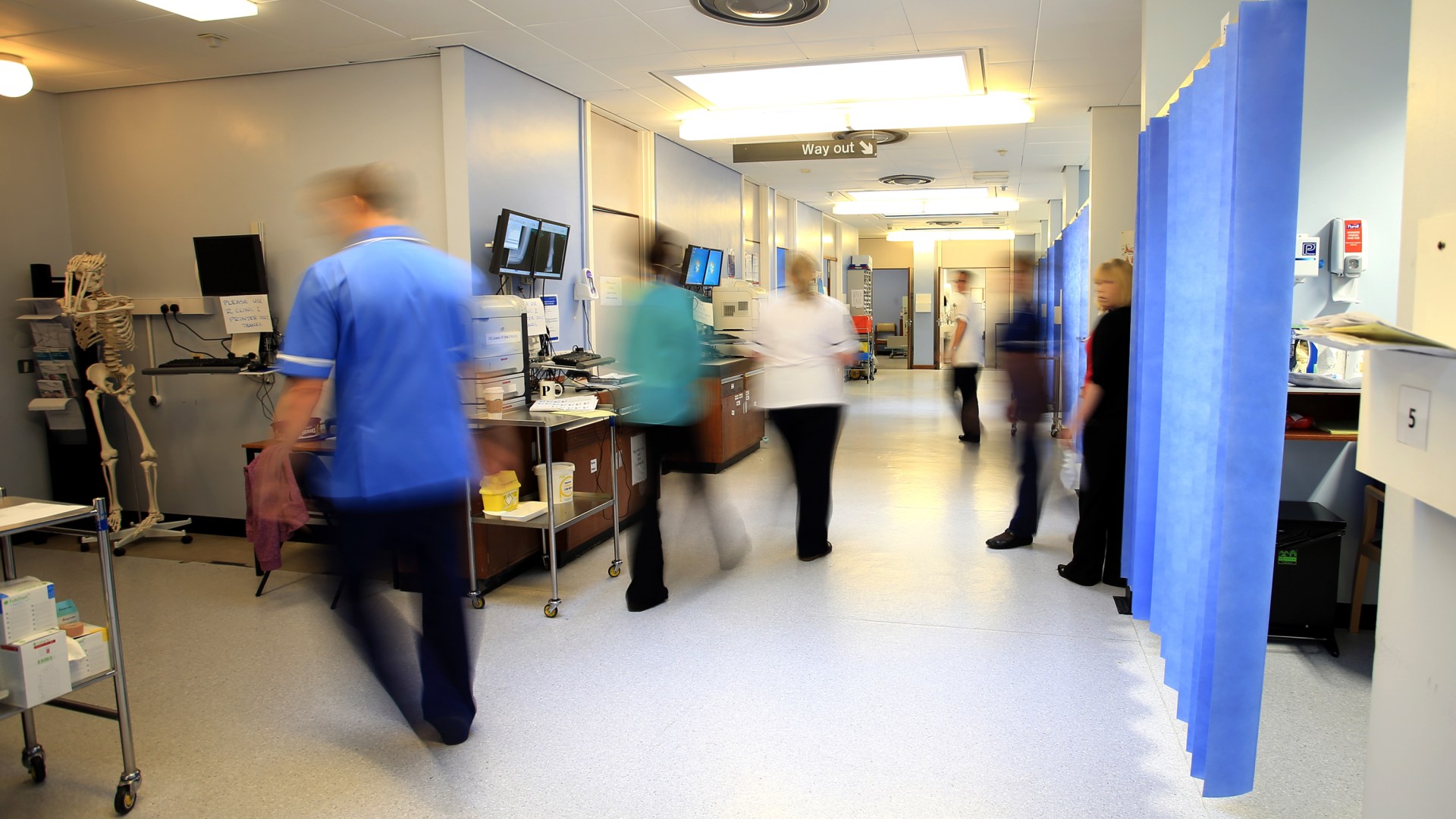THE dreaded ‘quad-demic’ has finally hit, with four winter bugs overwhelming NHS hospitals all at once, new figures confirm.
Several A&E departments have been forced to declare ‘critical incidents’ with many hospitals “full to bursting” as patients collapse in waiting rooms, NHS staff warn.
3

3
There were an average of 5,407 flu patients on wards each day in the week to January 5, new NHS data shows.
This is up seven per cent from 5,074 the week before and 3.5 times higher than last year.
Covid, norovirus and the coughing bug RSV – the other culprits of the ‘quad-demic’ – were also up as colder weather began to set in.
Over 1,100 Covid patients were in hospital daily last week.
Cases of the winter vomiting bug hit 626, nearly 50 per cent higher than last year.
While RSV admissions averaged 72 children a day, marking a 47 per cent increase.
NHS medical director Professor Sir Stephen Powis said: “It is hard to quantify just how tough it is for frontline staff at the moment.
“Some staff working in A&E say it feels like some of the days we had during the height of the pandemic.”
The data also confirmed that 2024 was the busiest year on record for emergency services, with 8.9 million ambulance callouts and 27.4 million A&E visits.
Brits are now being urged to attend A&E alone and wear face masks as doctors warn of “unsafe” care putting lives at risk.
Professor Julian Redhead, NHS England’s director of emergency care, said patients are being treated in corridors and cases could continue to rise as schools go back.
He said: “It’s too early to say it has definitively peaked.
“I would hope there would be a peak in the next one to two weeks.
“Wards are now full to bursting and that pressure is feeding back into A&E departments, with patients being treated in environments not usually used for clinical care.”
Hospitals in Birmingham, Cornwall, Hampshire, Liverpool, Northamptonshire and Plymouth have declared critical incidents in a bid to deal with the new winter pressures.
Critical incident protocols mean hospitals have to discharge patients faster and turn away people who are less seriously ill.
Lorraine, a nurse in Birmingham, told BBC Radio 4 Live “Patients are collapsing in the waiting room. It’s just hectic.”
“This is happening in A&E up and down the country, all areas,” said Joanne, one nurse working in an emergency ward in Manchester.
“A&E is in a desperate situation right now.”

3
“The government need to take urgent action. We need help,” she said.
Dr Adrian Boyle, the president of the Royal College of Emergency Medicine, said: “Patients are suffering unsafe and unacceptable care in what has become a regular winter crisis in an NHS that is not set up to cope with demand.
“Flu adds to the pressure but what we are seeing is not unprecedented — the real problem is that the system has so little resilience.”
Dr Boyle warned: “This is leading to thousands of avoidable deaths every year and the political priority should be dealing with the dangers patients are facing in our emergency departments.”
On Wednesday, Health Secretary Wes Streeting said he was ashamed of the crisis of “patients languishing in hospital corridors”, but says it does not look like it is getting better any time soon.
It comes as scenes of crowded hospitals in China stoked fears of the next Covid with cases of little-known winter virus hMPV surging.
But the World Health Organisation said hMPV was still at normal levels.
How can I protect myself?
Getting jabbed is one of the best ways to protect against these winter viruses.
The NHS is pleading with Brits to get vaccinated as cases and hospital admissions rise.
Flu, Covid and RSV vaccines are free to those who meet NHS eligibility criteria.
Adults aged 65 and over, care home residents and people aged six months to 64 years with specific underlying health conditions are all eligible for free Covid and flu jabs on the NHS.
Those not eligible for free vaccines can purchase one from their local chemist. There is some evidence to suggest wearing a face mask can protect you from catching the bugs.
An RSV vaccination programme has recently been deployed by the NHS. As of November 2024. More than one million have received an RSV vaccination.
The jab is available to those considered most vulnerable: older adults aged 75 to 79 and pregnant women.
Those not eligible can purchase a single dose of RSV vaccine from the pharmacy chain Boots for £245.
At this time there are no vaccines for norovirus – though some are in development.
So the best way to protect yourself from norovirus is to properly sanitise your hands, cover your mouth and nose when you cough and sneeze, dispose of tissues, let fresh air circulate and stay home if you’re unwell.
Delays in the rollout of the RSV vaccine may also mean some vulnerable people received it too late this year to be protected.




